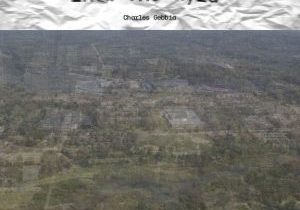Stephen Sorokanich III (AS ’15) completed a Capstone in mathematics and physics and worked with Prof. Leonid Kovalev as his advisor. His Capstone is entitled, Geometry of Hilbert Space Frames.
Stephen has a lot of advice for math students in Honors, so I’m going to turn the stage right over to him:
While the scientist has a lab or raw data to structure his or her investigation, the mathematician, without these, can feel particularly lost in a vast and abstract place. At times, an argument might seem obvious until it comes to putting it to paper. This is the biggest danger, especially when writing for a deadline. Scribbled notes can contain holes that you assumed were filled, and a theory might seem a collection of disparate facts until the student finally gathers the courage to type. When typing, strive for terseness without sacrificing thorough explanation. The best mathematical writings have a refined beauty to them. They have the ability to speak simply, and paint a picture of a theory as a coherent whole. To write mathematics is an art and a balancing act, between maintaining a sufficient level of rigor, while retaining a global scope and easing the reader into a subject.
 To do mathematics is another thing, arguably a thing that the undergraduate should limit in his or her prospects. To begin a thesis expecting to discover a great theorem is simply counterproductive, not to mention unreasonable. In the author’s opinion, the most under-appreciated aspect of mathematical discovery for undergraduates is the simple reinterpretation of existing results. It is a subtle business to reinterpret (or shall I say, re-frame), and not very glorified in the curriculum. You might hear these results referred to as “grunt work”, or “machinery”. They live in propositions, and might confuse the reader in their apparent obviousness. But they are crucial. If the mathematician has two tools, they are the formal proof, and the reframing of results. The former is what distinguishes mathematics from the other disciplines. The latter, however, is just as important, and might be called intuition. Instead of classifying finite Abelian groups, we classify finitely generated Modules over PIDs and get the result for groups as a consequence. In real analysis, we view the derivative on the real line as an approximating linear function and open up the world of multivariable calculus.
To do mathematics is another thing, arguably a thing that the undergraduate should limit in his or her prospects. To begin a thesis expecting to discover a great theorem is simply counterproductive, not to mention unreasonable. In the author’s opinion, the most under-appreciated aspect of mathematical discovery for undergraduates is the simple reinterpretation of existing results. It is a subtle business to reinterpret (or shall I say, re-frame), and not very glorified in the curriculum. You might hear these results referred to as “grunt work”, or “machinery”. They live in propositions, and might confuse the reader in their apparent obviousness. But they are crucial. If the mathematician has two tools, they are the formal proof, and the reframing of results. The former is what distinguishes mathematics from the other disciplines. The latter, however, is just as important, and might be called intuition. Instead of classifying finite Abelian groups, we classify finitely generated Modules over PIDs and get the result for groups as a consequence. In real analysis, we view the derivative on the real line as an approximating linear function and open up the world of multivariable calculus.
So how do you proceed writing an undergraduate thesis in mathematics? Your professor will likely give you a broad topic of investigation early on. Find a text to make your primary reference, and do as many exercises from it as possible. Then type them up. Then, perhaps six months later, type up “preliminary results” by recounting the theory from this text as best as possible, proofs included, from memory. This will become the first part of your thesis. All the while, you should be asking your advisor many questions about your topic. Most will be silly, but one may become another chapter of your thesis.
Inevitably, you will hit a dry spell. You will be lost trying to prove something in a topic you barely know anything about. After all, you are just an undergraduate. You won’t realize it, but very likely your advisor won’t know exactly where to go either, although probably for different reasons. The best and sometimes most difficult way to remove yourself from this period is simply to keep on reading, and keep on typing. Maybe read from a new book, skipping the proofs so you can “jump start” your understanding of a subject. You’ll find out that some mathematicians spend their whole lives in this state of mind. Get used to dealing with your own particular response to this stage.




